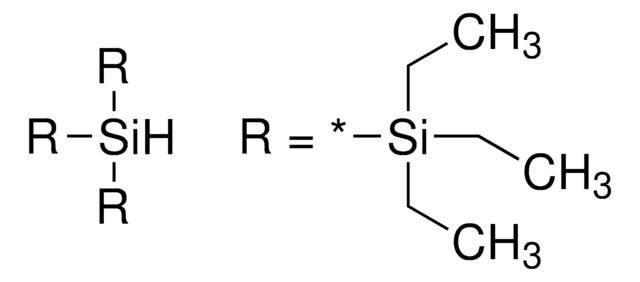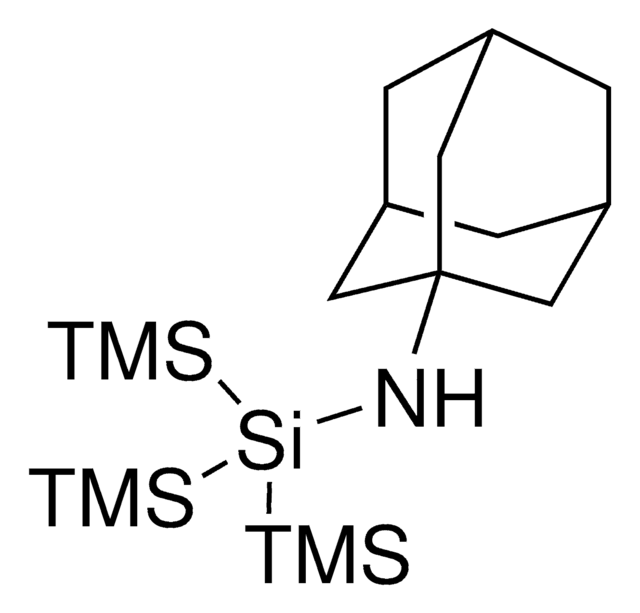370908
Tris(trimethylsiloxy)silane
≥98%
Synonym(s):
1,1,1,5,5,5-Hexamethyl-3-[(trimethylsilyl)oxy]trisiloxane
About This Item
Recommended Products
Assay
≥98%
form
liquid
refractive index
n20/D 1.386 (lit.)
bp
185 °C (lit.)
density
0.852 g/mL at 25 °C (lit.)
SMILES string
C[Si](C)(C)O[SiH](O[Si](C)(C)C)O[Si](C)(C)C
InChI
1S/C9H28O3Si4/c1-14(2,3)10-13(11-15(4,5)6)12-16(7,8)9/h13H,1-9H3
InChI key
FDWGGTLVZGTDGQ-UHFFFAOYSA-N
Looking for similar products? Visit Product Comparison Guide
Signal Word
Warning
Hazard Statements
Hazard Classifications
Flam. Liq. 3
Storage Class Code
3 - Flammable liquids
WGK
WGK 3
Flash Point(F)
131.0 °F - closed cup
Flash Point(C)
55 °C - closed cup
Personal Protective Equipment
Choose from one of the most recent versions:
Already Own This Product?
Find documentation for the products that you have recently purchased in the Document Library.
Customers Also Viewed
Our team of scientists has experience in all areas of research including Life Science, Material Science, Chemical Synthesis, Chromatography, Analytical and many others.
Contact Technical Service




![3-[Tris(trimethylsiloxy)silyl]propyl methacrylate contains MEHQ + HQ as stabilizer, 98%](/deepweb/assets/sigmaaldrich/product/structures/148/664/33ff5116-f264-4a64-824a-009c2ca5b2b3/640/33ff5116-f264-4a64-824a-009c2ca5b2b3.png)




